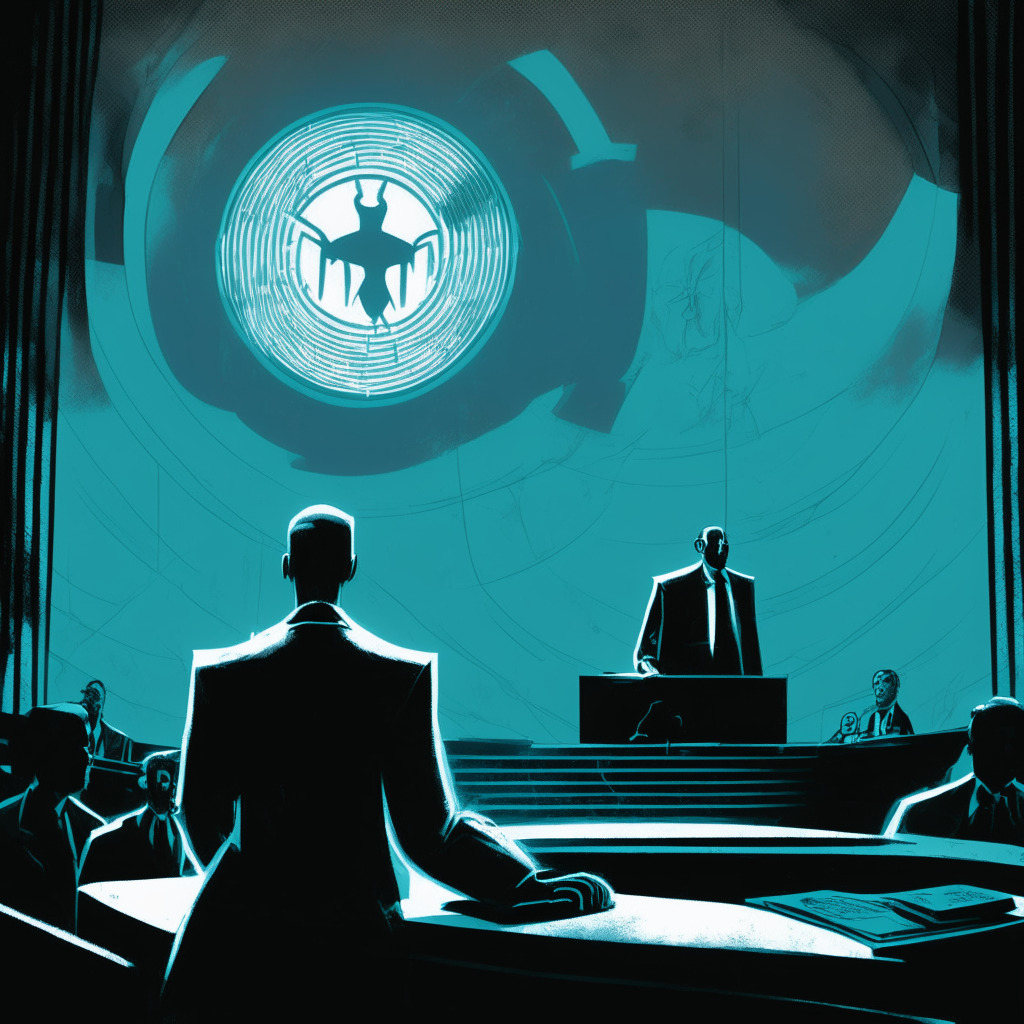The waters are set to churn around the focal point of the largest scandal the crypto-industry has encountered to date. Sam Bankman-Fried (SBF), founder of the now insolvent cryptocurrency exchange FTX, is set to argue he acted in good faith; a defense that leans strongly on the advice of his former legal counsel. This attempt to dissociate himself from numerous fraud charges, has sparked intrigue across the crypto community.
Last year, when FTX took a colossal downfall, SBF found himself accused of pairing customer funds with his hedge fund Alameda Research, allegedly concealing crucial risk management practices from investors. Today, he proposes that his following of Fenwick & West lawyers guidelines– concerning his loans to FTX executives and establishment of North American entities– keeps him free from blame.
Yet, when SBF’s actions in using user funds to bolster Alameda’s flagging balance sheet came to light, FTX users hastily withdrew their funds causing the exchange to tumble into bankruptcy. Retrospectively, this sparks a reflection on whether ‘legal’ advice alone can be justified as acting within good faith.
Interestingly, SBF’s defense will present proof of these accusations being sanctioned by FTX’s own and Fenwick attorneys. This angle may lead to a new perspective on attorney-client dialogues and its potential limitations in the sphere of corporate governance and accountability.
Unsurprisingly, FTX’s catastrophic fall has blemished retail investor faith in crypto and web3 markets. The exchange’s blight is pitted as possibly the largest scandal in crypto history, impacting even Bitcoin prices by a hefty 25%, a drag that many believe concluded the 2022 bear market. Forensic analysis of this debacle entails more nuanced issues as FTX’s ties with Washington politicians have tarnished the crypto industry’s rapport with politicians and federal agencies.
Observers are linking SEC’s intensified attempts at crypto-regulation in 2023 to a kind of a “retaliatory action” from the watchdog, scorched by FTX’s actions. The trial commencing in October, where SBF confronts eight criminal charges, looms heavily over the fate of the once influential crypto firm. As it stands, FTX owes around $3 billion to defrauded users and investors, a saga that offers vital lessons in accountability, corporate governance, and trust in the world of crypto.
Recently, vestiges of hope emerged with FTX’s intentions of relaunching operations under new CEO John Ray III. The unfolding chain of events will catalyze shifts in perceptions and engagement with the world of crypto.
Source: Cryptonews




